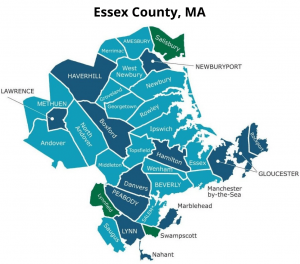Social Justice Coalition

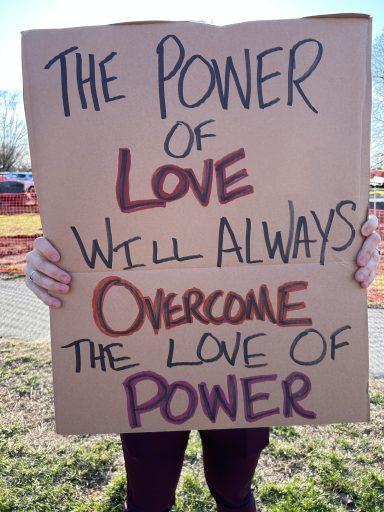
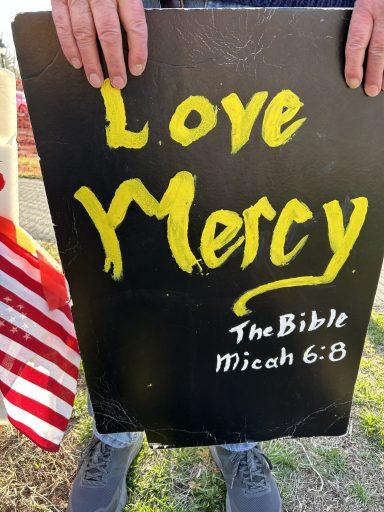
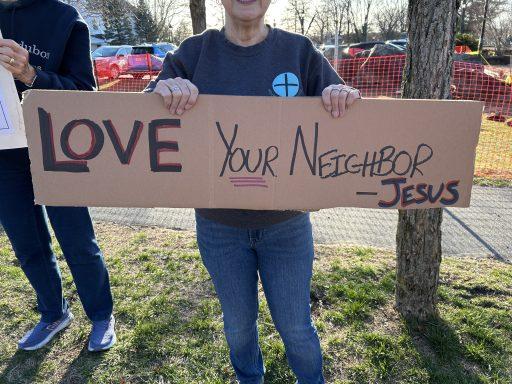
Dear almighty God of many names,
We too are trying something new, something vulnerable, something bold. Uncertainty is in our shadow but God you are shining a light to lead the way.
We do not want to let our anxieties keep us from stepping out in faith and doing what you call us to do. We want to be courageous! We know that being courageous doesn’t mean we’re never afraid, but it does mean that we won’t let fear or discomfort stop us.
Moses had the courage to face Pharoah.
Ruth had immense conviction to abide by Naomi.
Daniel unwaveringly faced down lions.
David was steadfastly confident in God’s protection.
Joshua bravely and willingly followed a way of courage, and decisiveness.
Ester courageously saved her people.
Peter had the bold faith to step out of the boat onto the sea.
Paul had the courage to face down the authorities who were threatening him, even after he’d come near to death at their hands several times.
Courage is in our lineage! So many more named and unnamed individuals over the millennia have stepped out in faith to bring God’s love and will into action.
History teems with good, courageous people. Let us be counted among them!
As we embark on this new adventure, we pray the power of the Holy Spirit in us will enable us to do anything you call us to do. Lord, reveal to us our bravery, sharpen our wisdom. We’ll stand out on the curb, ready to talk to some new person, ally or dissenter; we’ll pray for the angry passerby who blares a horn at us; we’ll stretch to call people into conversation rather than call them out with judgement; we will be bold yet imperfect in our effort to be visible, to be fiercely loving in your name and honor.
May the power of the Holy Spirit that lives within each of us move the people around us to stand and speak out for humanity and democracy. May we love you God with all our heart and mind and soul, and love our neighbors as ourselves.
Thank you, thank you, thank you. We know, believe and feel you are always with us.
In Jesus’s name and in the universal name of love, Amen.
How do you seek justice in your life? The Social Justice Coalition (SJC) works to “…do justice, and to love kindness, and to walk humbly with God,” Micah 6:8.
Join us as we respond to injustice through discussion, prayer, education, advocacy and church/community events. For more information, email the SJC and follow us on Facebook.
HELP GETTING SNAP (formerly called food stamps)
- Call Project Bread 617-723-5000, 800-645-8333
- Visit projectbread.org
- Apply at mass.gov/snap-benefits-
formerly-food-stamps
FOOD PANTRIES
2nd and 4th Tuesdays 7:00am to 10:30am
People’s Pantry
North Parish Unitarian Universalist Church
Go to entrance door at rear of church.
190 Academy Rd., North Andover
978-687-7948
To donate, click here.
Tuesdays 9:00 to 10:30am
Neighbors in Need Pantry
Iglesia Adventista Del Septimo Dia Jerusalen
198 S. Broadway, Lawrence
4th Tuesday of every month 9:00 to 10:30am
Brown Bag
Andover Robb Senior Center, 30 Whittier Court
Must register & obtain ID card in advance
Call 978-683-7747 or at Andover Senior Center
Tuesdays 5:30 to 6:30pm
Neighbors in Need Pantry
First Church Methuen
26 Pleasant St. (in rear parking lot on High St.)
Methuen
Wednesdays 9:00 to 10:30am
Neighbors in Need Pantry
Neil Playstead
188 Lawrence St. (next to St. Monica’s Church)
Methuen
2nd Wednesday of the month 10:00 to noon
YMCA Mobile Food Pantry
Andover Robb Senior Center, 30 Whittier Court
(To donate operations.daxko.com)
Thursdays 9:00 to 10:30am
Neighbors in Need Pantry
Boys and Girls Club
136 Water St. Lawrence
Thursdays 4 to 5pm
Neighbors in Need Pantry
Andover’s Robb Senior Center
30 Whittier Court
First visit-complete intake form & obtain ID card
(To donate needfood.org)
Fridays 9:00 to 10:30am
Neighbors in Need Pantry
Ministerio Apostolico Jesucristo es el Senor
96 E. Haverhill St., Lawrence
To donate, visit needfood.org.
FARM STANDS If you have SNAP, you have HIP
Use one of these farm stands for your HIP benefits:
Fridays Methuen
June 15 – Oct 29
10 am – 4 pm
Nevins Memorial Library
305 Broadway, Rte 28
Groundwork Lawrence
Saturdays Lawrence
June 15 – Oct.29
10 am – 4pm
O’Connell South Common
Across from Pronto Pizza
65 South Union St. Groundwork Lawrence
Saturdays Lawrence
Nov. 8th, 2025 to May 23rd.,2026
2nd and 4th Saturdays
(Dec. 2nd and 3rd)
10 am to 4 pm
50 Island St. Entry B
Groundwork Lawrence
Sundays North Andover
June 15th – Sept 29th
10 am-1 pm 2-20 First St
Veterans Food Security Program
Andover Saturdays
June 21 – Oct 18
9 am – 1 pm
Between Town Offices & the Park
34 Bartlet St.
$25 SNAP Match
Andover Farmers Market
Tewksbury Farmer Dave’s Stand, 460 East St.
Call for times 978-851-2048
Dracut Farmer Dave’s Stand, 437 Parker Rd.
8 am – 6 pm Every Day
978-454-3434
COMMUNITY REFRIGERATOR
Open every day, 24 hours
Village Food Hub Community Refrigerator & Pantry
Located outside next to Ballardvale United Church, 23 Clark Rd. Andover
978-360-4395
No forms. No questions.
(Donate eggs, milk, cheese sticks, bread, frozen protein items, or BVUC.org/pantry)
COMMUNITY FOOD LOCKERS
Info and registration at VillageFoodHub.org
Andover, Lawrence, North Andover residents only
23 Clark Rd. BallardVale United Church
Andover
Why the focus on juvenile justice?
The SJC felt called to pursue juvenile justice when we learned that in 2020 Massachusetts was the 4th worst state in the country for racial disparities in juvenile justice. A closer look found that Black, Latinx, and foster care children accumulate disadvantages at every point in the justice system: more arrests, more bail, less diversion, more pretrial detention, more arraignments, more adjudications (convictions), more punitive sanctions in dispositions (sentences). In Massachusetts, half the juveniles in detention are “cross-over children”, coming from the child welfare system directly to the juvenile justice system.
How to answer the call to justice?
SJC members studied pending Massachusetts juvenile justice legislation and selected three bills to focus on. We worked vigorously for these bills and learned how lawmaking happens in Massachusetts. We did email campaigns, filed testimony, made phone calls, made videos, and wrote letters to the editor. With the Church Council’s blessing, SJC joined forces with Citizens for Juvenile Justice, a statewide coalition of 60+ organizations. The SJC joined with the Actual Justice Task Force of the Southern New England United Church of Christ to learn more about how to advocate at the state level. We learned the reality that it often takes multiple legislative sessions to get a bill passed.
Below are the three bills we continue to advocate for with links informative fact sheets:
- Improving Juvenile Justice Data H1802/S931 fact sheet
- Protecting Youth During Custodial Interrogations H1650/S69 fact sheet
- Prevent the Imposition of Mandatory Minimum Sentences Based on Juvenile Adjudications H1688/S959 fact sheet
How does Essex County compare?
Once we learned more about parameters for measuring safety, fairness, and equity in the justice process, and came to appreciate the complexities of comparing data, it seems apparent that the District Attorney is the most influential position in the justice system. We are considering how to make juvenile justice across Essex County fairer, more equitable, and safer for juveniles and the community. After much research, we’ve found some things surprising, some disheartening, some encouraging. We look forward to hearing from our new District Attorney about policies, evaluations, and aspirations for juvenile justice across Essex County.
ACTION: Send a letter to support 3 bills
Advocating for Juvenile Justice Across the Commonwealth of Massachusetts
To advocate for fairer, more equitable juvenile justice in Massachusetts, please appeal to your State Representative and State Senator to cosponsor and support these three bills:
- Improving Juvenile Justice Data H1802/S931
- Protecting Youth During Custodial Interrogations H1650/S69
- Prevent the Imposition of Mandatory Minimum Sentences Based on Juvenile Adjudications H1688/S959.
Click the button below to personalize and send a letter with your date, name and address added along with any emphasis or edits you choose.
Click the button below if you need to determine who your legislators are and their email addresses.
In 2022, Massachusetts had the 11th worst racial disparities in juvenile justice...
…in the country. Half the children in DYS detention in Massachusetts are “cross-over kids”, going from state child welfare to the juvenile justice system. Black, Latinx, and foster kids accumulate disadvantage at every stage of the criminal legal system. They are more likely to be arrested, not meet bail, not participate in diversion programs, be adjudicated (convicted) and receive more punitive sanctions than white youth. The disadvantage even extends systemically beyond childhood with a juvenile record factoring into adult mandatory minimum sentences.
Are there safer, fairer, more equitable ways to administer juvenile justice? This Town Hall Conversation will focus on policies and abilities to do just that. How does Essex County contribute to the Commonwealth’s poor standing nationally? How does our county compare to others in the state? How do we want to compare? What would you want to change if your child had to face the same disadvantages?
Substance Abuse Disorder and other mental illnesses cause...
…some juveniles’ crimes. Consider the absurdity of prosecuting a case when the crime was committed in the middle of a psychotic break or the futility of prosecuting a crime driven by substance abuse without providing treatment. Does policy compel formal prosecution? Our Department of Youth Services detention facilities hold many juveniles with complex mental health conditions. Is this the only way to protect public safety?
Training around behavioral health issues can help create a program to stabilize the juvenile and to then receive intensive community-based treatment and services. This is called the “Diversion Learning Lab” or locally, “court diversion program.” Merrimack Valley Family Services coordinates the provision of services. If conditions of the program are met, the case against the juvenile will not proceed in the court system. If conditions are not or cannot be met, the juvenile is returned to court for prosecution. This is an optimal alternative to formal prosecution while preventing re-offense and treating the illness.
You may well know of a young person who has had this trouble. What path would you choose for that youth?
Compared to other counties, Essex County under-utilizes diversion...
…for juvenile offenders. Why does this matter? Because diversion steers youth to an alternative option to avoid entering the justice system, reduces the backlog of court cases, freeing up prosecutors to concentrate on more serious, violent crimes.
How? Diversion is a voluntary program created by a district attorney’s office, the defense attorney, and the court requiring various terms. Do all assistant district attorneys know how to utilize diversion? Or perhaps, is policy challenging that effort? Diversion matters to our juveniles and our community!
When a young person gets in trouble with the law,
this may be the beginning of many encounters with the justice system. Worse still, the deeper a juvenile moves through the system, the more likely recidivism will occur and the young person may be ensnared in a lifetime of crime.
Is there a way to avoid formal prosecution? YES.
Is there an off ramp from this path? YES.
In a county of over 800,000 residents, our DA represents the Commonwealth in 12 courts for 34 towns and cities: District Courts, Juvenile Courts, and Superior Courts. The DA also oversees hundreds of prosecutors and staff, some dedicated to juvenile cases. The DA, the defense attorney, and the court together craft diversion programs that can both foster positive outcomes for juveniles and for community safety as well.
Which would you choose for your child? What do you want for our community?
Help For Our Troubled Youth
The SJC’s Juvenile Justice Reform Initiative is an effort to reduce the racial disparities of youth within our Massachusetts justice system. Massachusetts is among the worst in the nation for racial disparities in the administration of juvenile justice. Research indicates these disparities cannot be adequately explained by differential offending; instead, such disparities reflect (and aggravate) systemic racism.
This Massachusetts legislative session the SJC is lobbying for four reform bills, two of which are carried over from the last session. We welcome your participation in a big way or a small way. Meetings are scheduled as needed and are on ZOOM. No prior experience is required. Click to email Bob Tigelaar or Meredith Moody for more information.
A Call to Improve Justice for Massachusetts Children and Youth
Did you know that in Massachusetts the racial disparities in the juvenile justice system are among the worst in the nation? Did you know that a delinquent mistake in childhood could add years to an adult criminal sentence? Did you know that most data on the juvenile justice system 32 decision points are uncollected or hidden from other agencies and the public? Legislators and policy makers are deprived of necessary information to make the juvenile justice system more effective and fairer. Find your legislator at: tinyurl.com/findmyMAlegislator.
SJC Joins Citizens for Juvenile Justice
We are happy to share the good news that on February 28th, 2022 the Church Council supported the SJC joining the Massachusetts non-profit coalition Citizens for Juvenile Justice (www.cfjj.org). We are now aligned with 60+ member organizations solely dedicated to juvenile justice reform in our state. This connection to a statewide resource and ally stems from the SJC’s focus on the Commonwealth’s juvenile justice system.
December 2023 | Local Food Insecurity Panel Discussion
In early December 2023, Meredith Moody and Ellen Townson (both members of the Social Justice Coalition) helped lead a discussion on food insecurity. Topics included the current problem, current resources for food, how to access food, and how to be part of the solution. The event was held at Memorial Hall Library in Andover.
To obtain a copy of the program slides, click here to contact Meredith.
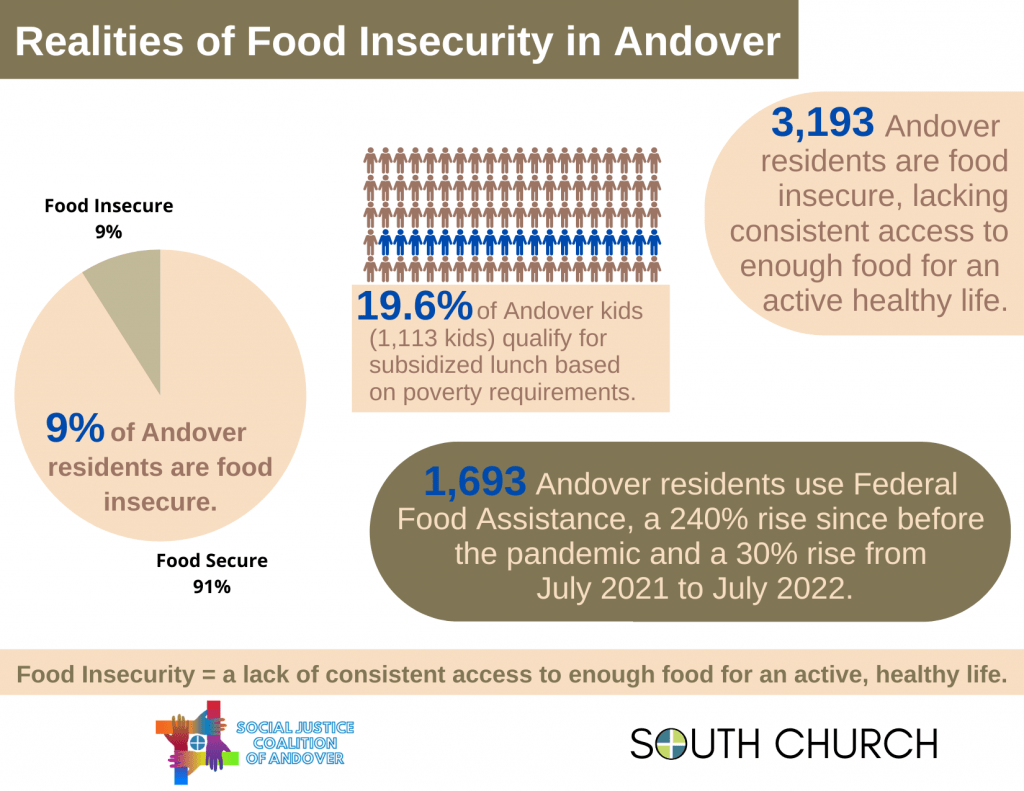
Re-THINKING Food Insecurity in Andover
Andover residents are experiencing increasing food insecurity.
Professionals recognize that food insecurity can cause toxic stress in children in any community, not only traditionally underserved ones.
These children are likely to
- be sick more often
- recover from illness more slowly and be hospitalized more often
- lack adequate healthy food
- have impaired ability to concentrate and perform well
- have higher levels of behavioral and emotional problems
Additionally, the food insecure have more ambulance calls while poor nutritional status in the elderly specifically increases their fall risk.
When do we as a community respond to the needs of our neighbors who cannot access adequate food resources to support a healthy lifestyle?
Food Insecurity Data References:
- www.mass.gov/DTA Aug 2022
- frac.org/wp-content/uploads/
hunger-health-impact-poverty- food-insecurity-health-well- being.pdf - bmcpublichealth.biomedcentral.
com/articles/10.1186/s12889- 019-6964-1 - annemergmed.com/article/s0196-
0644(17)31129-0/fulltext - ers.usda.gov/data-
products/ag-and-food- statistics-charting-the- essentials/food-security-and- nutrtion-assistance/?topicid= c40bd422-99d8-4715-93fa- f2f7674bc78b
Over 2000 people in Andover unknowingly qualify for the federal government’s food assistance program SNAP.
On top of that, only 4% of SNAP recipients in Massachusetts are empowered enough to use their additional HIP benefits (free fresh fruits and vegetables from farm stands). Again scripture called for more action. South Church dedicated our Monthly Mission Partnership in November 2021 to Closing the SNAP Gap and fighting food insecurity. The SJC is using those donations in educating and advocating individuals and families about SNAP/HIP on multiple fronts: information booths at food pantries, announcements in community newsletters and church bulletins, workshops for various housing venues, homegrown flyers for use by social workers and other SNAP/HIP advocates (thank you Nora Pelt!). This effort strives to address food insecurity at a systemic level connecting people in need with empowering, long term resources, and to destigmatize food insecurity by caring for our neighbors.


In 2022, in honor of Indigenous Peoples Day...
The Social Justice Coalition and Cazimi, our Artists in Residence present Red Dresses: Invisible Made Visible. The Missing and Murdered Indigenous Women and Girls are remembered with the display of Red Dresses by the church. The MMIWG disappear three times – in life, in the media, in the data.
Please learn more at Not Our Native Daughters and Native Hope.
In 2021, in honor of Indigenous Peoples Day...
… a holiday celebrating and honoring Native American peoples and their histories, the Social Justice Coalition shared a visual art installation on the North Lawn of the church. We invited everyone to see all of God’s children and sisters in Christ. Making the invisible visible.
Stop and consider how Native American women and girls are invisible by their murder and abduction for sex trafficking. Native American women and girls are also invisible through the lack of media coverage of their homicides, and any coverage is more likely to use violent language portraying the victim in a negative light. And yet again, Missing and Murdered Indigenous Women (MMIW) are invisible in Federal and local databases which fail to count their abductions or deaths: what is not counted does not get addressed.
Please learn more at Not Our Native Daughters and Native Hope.



4-7pm, Saturday, June 21st
The Social Justice Coalition is helping to present a Block Party style Juneteenth Celebration on Central St. and by the Andover Baptist Church. Saturday, June 21st, 4-7 PM An event for the whole family. Music, food, arts and crafts, games, community and history exhibits, mini vendors market, trivia with prizes. Two free workshops at 4:30 and 6 PM. Read on for details….
1st workshop: Healing Intergenerational Trauma
At Andover Baptist Church Parlor
Start Time — 4:30pm
“We tend to believe in free will. That it is we who ultimately determines our fate; that we are the captains of our own ships. When working with healing trauma, this belief is often challenged, as we become aware of repetitive patterns of suffering and unhappiness that can span generations. This pattern is grounded in an energetic presence of unresolved trauma responses that were once activated for protection and have been passed on from generation to generation. These lingering “ghosts” can still have powerful influences on our emotions, reactions, behaviors, and choices.”
Abria Wynn, Mind-body coach and Somatic Experiencing practitioner will lead us through how, unbeknown to us, we may be influenced by events and circumstances that our ancestors (and their ancestors in turn) have experienced during their lifetimes. These influences are often far out of conscious awareness. By exploring our unconscious connection to our lineage, that neither time nor distance alters, we can be capable of connecting to the complexities of our family line with healing reverence.
This workshop was originated by Peter A Levine, PhD, the founder of the Somatic Experiencing™
WHAT YOU’LL LEARN:
Explore transgenerational transmission of trauma-based patterns over time
Integrate how we learn how to accept life, both in the past and present
Practice exercises geared towards exploring our ancestors and taking responsibility for ones’ own life energy
Demonstrate through given exercises, how we take responsibility and say yes to life and moving forward
Formulate time for grieving and letting go with support
2nd Workshop: Wisdom Conversations
At Andover Baptist Church Parlor
Start Time — 6:00pm
In this session, we will explore the. “Future Progression Practice” to examine how to set clear goals and track them. We will discuss how setting goals from a MindBody perspective involves guiding ourselves into our own embodied sensation and feeling in order to envision our goals, distinguishing those goals from ones that are externally or socially prescribed. Through attending to the felt sense of the body, Mind-body Coach, Abria will provide support of the uncovering of embodied relational and behavioral patterns, as well as the underlying strategy. This, in turn, allows us to work together on transforming those patterns through somatic practices and move towards a healthier collective future.
This workshop was originated by, Kai Cheng Thom, MSW, MSc, is a certified Somatic Sex Educator, Qualified Mediator, Clinical Hypnotherapist and Certified Professional Coach based in tkaronto/Toronto.

This program will save packaged, non-perishable food that would otherwise end up in the cafeteria trash, if not recovered from student’s trays. To kick things off, the Student Council will educate all students on how to participate so that every grade can take part in this program, learn important food values, and community spirit.
- 2 volunteers at breakfast (8:30 AM – 9:10 AM): This position will entail coaching students and keeping documentation. Parents can bring students and/or younger siblings with them as volunteers in the mornings. Parents must be responsible for their students until school hours start at 8:45 AM.
- 2 volunteers at lunch (11:00 AM – 1:15 PM): This position will entail coaching students and keeping documentation. Parents can bring younger siblings.
- 1 transport volunteer weekly to pick-up food at West Elementary and transport to the Village Food Hub (23 Clark Road): This is a once a week volunteer opportunity to occur any day of the week, at the volunteer’s convenience. Transport volunteers will be asked to pick up the food between the hours of 8:00 AM – 4:00 PM one day per week at the school, drop off, and return the bin in a timely fashion (e.g. the next day, if food is delivered on Friday, return the bin by Monday, etc.)
7 Day Criminal Justice Reform Challenge
Micah 6:8
What does the Lord require of you but to do justice, and to love kindness, and to walk humbly with your God?
Thank you for committing to spending a few minutes today as the first day in the week of the 7 Day District Attorney Challenge. Each day the DA Challenge presents scripture to hinge our work as citizens to our faithful calling to live into our Church’s mission, “to boldly embody God’s love and compassion” in our community.
Today, the prophet Micah calls us “to do justice.” Start by watching the linked videos to understand what an elected District Attorney does and the power they wield. We can do justice and boldly embody God’s love and compassion to reach beyond Andover to Lawrence and to all of Essex County.
The District Attorney is the most powerful player in Essex County justice. The DA administers justice through the power and discretion of the prosecutors to:
- Decide what crimes to charge, if any
- Decide who will be detained before trial
- Control plea deals offered (~95% of convictions in Essex County are plea deals)
- Determine sentencing recommendations
- Oversee police accountability
- Care for victims of crime.
In 2018, an average of 19 residents per 10,000 were serving sentences in Essex County, 35% greater than the statewide county rate of 14. The Essex County rate was three times that of neighboring Middlesex County. In 2015, Essex County had more state prison admissions as well as more county jail admissions than any other county in the state (Vera Institute).
Do these numbers reflect Micah’s direction for us? Perhaps there is a fairer and more effective system of justice which could save taxpayer money and raise the standards of humane justice. The upcoming days in this challenge highlight the need for transformation in our court system and will investigate the possibilities for safer communities for everyone.
Psalm 69:33
For the Lord hears the needy and does not despise his own people who are prisoners.
Your vote in the Essex County DA race is crucial to achieving an effective and equitable justice system. The last time the DA primary race was contested, fewer than 100,000 votes were cast.
Almost 10% of those voters left the DA choice blank. Voting stats tell us we need to learn more about the DA and why we need to care. Uncontested races lack public dialogue which can examine current policies and practices of the DA’s Office.
According to The Appeal.org, “justices in the state’s highest court are weighing whether it is unconstitutional to sentence people convicted of murder and aged 18 to 20 to life without parole.” Massachusetts could loosen life without parole restrictions for young people
Hebrews 13:3
Remember those who are in prison, as though in prison with them; and those who are ill-treated, since you also are in the body.
Essex County Community Foundation’s “Impact Essex County” shows that Essex County has one of the highest rates for racial disparity in juvenile justice in the Commonwealth. In addition to the serious racial disparities, Essex County also has the highest rate of juvenile detention in the state. From the Sentencing Project July 15, 2021 Black Disparities in Youth Incarceration data shows us that in Massachusetts, seven times as many black people (anecdotally darker skinned LatinX people are often classified as Black including Dominicans) are incarcerated for every white person incarcerated (per 100,000).
- Definition of economic racial gender disparity (1:30 min)
- District attorneys need to take ownership of their institutions’ roles in perpetuating systems of oppression. One example of striving for accountability is Duke Law School’s Plea Tracker Project, an unprecedented look at how prosecutors use their discretion and a rare example of prosecutors putting a check on their own practices.
- Why prosecutors must shine a light on plea agreements Boston Globe Opinion 10/18/2021
- The Unfair Toll of Tough-on-Crime Pretrial Detention: Prosecutors hold an imbalance of power, outweighing the power of the accused and their defense. A prosecutors’ leverage lies in their ability to ask for bail or not ask for bail, file for a dangerousness hearing or not, charge a crime with a mandatory minimum sentence or one without, charge a sentencing enhancement or not. In regards to cash bail, if a DA asks for bail to be set at an amount higher than the defendant can afford, then the defendant, who is innocent until proven guilty, will sit in jail until the date of the trial. This waiting period could well be a longer time than the sentence for the crime charged. The toll of unaffordable cash bail imposes high costs on the detainees, their families, their communities, and the larger public. In the Massachusetts Profile PrisonPolicy.org, 68% of jail inmates are held pretrial, unconvicted. To explore how a DA can implement transformational leadership, read After cash bail: A framework for reimagining pretrial justice. Recent state-wide changes to the law were aimed to prevent pre trial imprisonment based on poverty. These changes have made it somewhat more difficult for the prosecutors to seek a high cash bail. In response to these changes, the prosecutors’ request for a 58A Dangerousness Hearing, if successful, eliminates the possibility of bail. The “58A” is a court ordered detention “for a felony offense that has as an element of the offense the use, attempted use or threatened use of physical force against the person of another or any other felony that, by its nature, involves a substantial risk that physical force against the person of another may result…” Essex County outranks other counties in the Commonwealth for the number of 58A requests made by the prosecutors. Two cities within Essex County, Lawrence and Lynn, have the highest rate of 58a dangerousness pretrial detentions in the state. As Defense Attorney Stephen Van Dyke describes in the MassLive.com article, A rise in dangerousness hearings, which can hold a defendant 180 days before trial, could limit presumption of innocence (11/24/2019), there is an erosion of the presumption of innocence when a person is locked up after a pretrial dangerousness hearing because the punishment comes before the trial.
Psalm 79:11 ESV
Let the groans of the prisoners come before you; according to your great power.
Is our current system the only way to promote safety in our communities or is there a better way? Consider this TedTalk How to fix two of the most broken systems in the US (16:17) 2021.
A better, more faithful and human way to assess the justice system’s impact on a community could be to measure how people are diverted out of the criminal justice system and into the services they need. We do not need to continue measuring success as wins or losses, but instead, by communal and individual healing.
We need to help people find stability by treating underlying issues like: substance abuse, mental illness, poverty, and trauma. In doing so, we reduce the likelihood of individuals reoffending. As the leader of a District Attorney’s office, a DA has the ability to make these changes happen.
In FY 2020, the average annual cost per inmate in Massachusetts was $91,643, which is approximately $200 million a year (MA Department Of Corrections). Massachusetts spends roughly $50 million a year to confine youth for low-level offenses which would be suitable for diversion. A juvenile detention bed costs approximately $82,000 per year (MA Department of Youth Services). Only 3% are serious or chronic offenders. Six leading diversion programs cost-benefit analysis found that every $1 spent on diversion produced savings of $10.60 to $25.60 (Citizens for Juvenile Justice). Imagine the stability we could create in individuals’ lives by preemptively addressing the root causes underlying contact with the criminal justice system, as well as by disrupting the revolving door of our prisons.
- To learn more about Juvenile Diversion and Detention read The Annie E. Casey Foundation’s compilation of Juvenile Detention references
- Study shows no prosecution policies may work Boston Globe 3/29/2021
Matthew 25:35-40
…I was in prison and you came to me….as you did it to one of the least of these my brethren, you did it to me.
How does compassion play a role in justice? Jesus calls us from scripture to focus on the plight of prisoners. Public defender and South Church member Kristin Lummus shares with us her understanding of how compassion can be interwoven into both sides of the judicial system in Essex County.
How are victims of crime currently typically treated in Essex County?
How is justice served in Essex County?
How can diversion programs offering services to address addiction, mental illness, and poverty turn the tide of mass incarceration and mass supervision?
Final note: Tune in, pay attention, and show up.
- Cost Savings and The Urgent Need for Probation and Parole Reform (Fair and Just Prosecution 2:12) 2021
- The victim’s perspective From tough-on-crime to smart-on-crime (1 min) from Essex County Justice Summit April 9, 2022. Speaker link here to full segment Stacy Seward Dream Network
- Compassion has a price, but so does lack of it Boston Globe 3/20/2021
Isaiah 42:7
To open the eyes that are blind, to bring out the prisoners from the dungeon, from the prison those who sit in darkness.
Equity, progress and reform are within reach. Transparency and accountability in public office, such as a DA, can provide the public with access to information regarding a DA’s policies and the effects those policies have on a community, and the importance of relying on data to drive policies and measure progress. For a glimpse of what a different model could look like, watch Fair and Just Prosecution’s Prosecutorial Performance Indicators – A New Vision for Success (2:43) 2021
Prosecutors must be leaders in the effort to ensure that convictions are the result of processes that are fair, transparent, and consistent with the pursuit of justice. Respecting privacy and due process rights of those directly involved in a case are important and constitutionally required.The public needs access to information regarding a DA’s policies and the effects those policies have on a community. Prosecutors have an obligation to show the public how decisions are made. As we can see in the juvenile justice system, there are 32+ decision points ranging from initial contact with police to expungement. Comprehensive data is lacking, only accessible to the public at several decision points. When transparency and comprehensive data are lacking, it keeps people from working to provide a more just world – free of racism and classism.
Read more…
“If we are to overcome the pervasive racial and other disparities that infect our criminal legal system, prosecutors must institute checks on their own biases to ensure that we extend mercy fairly, regardless of skin color or socioeconomic factors.” Read more here…
Watch more…
Why smart statistics are the key to fighting crime (12:29) 2013
Luke 4:18
The Spirit of the Lord is upon me, because he has anointed me to proclaim good news to the poor. He has sent me to proclaim liberty to the captives and recovering of sight to the blind, to set at liberty those who are oppressed
Consider how an estimated 64% of jail inmates and 56% of state prison inmates have mental health problems. People with mental illness are 9 times more likely to be incarcerated than hospitalized. People with mental illness stay four to eight times longer in jail than someone without a mental illness for the exact same charge. (Mental Health/ The Prison Policy Initiative 5/10/22). A DA’s prosecutors can channel ill people into care and support within the community rather than punitively condemn them to a cycle of incarceration and drain on the community.
Can we reimagine public safety, moving away from a police-first, punitive, carceral system and shifting focus to improving educational and employment opportunities and better social services? How can a District Attorney’s Office use innovation rather than the wrath of punishment as the guiding theme for public safety? Stay tuned for more ways to advocate for a more just, loving and equitable world!
To hear voices of those impacted and voices of hope, watch the following two videos…
SJC Recommends...
The Social Justice Coalition invites you to look at themes of injustice, racial tensions and white supremacy through the varied lenses of media. With the United States’s shameful history of native american displacement and slavery to the ongoing debate about immigration, the topic of race in America is one that continues to need reflection, conversation, and action to combat the internal messages that we receive through our built-in value systems and false beliefs. Thankfully, there are wonderful resources available – inspiring stories about unforgettable leaders to heart-wrenching documentaries about civil rights.
It is our hope that these recommendations start or continue essential conversations about race. They can shine a light on ways in which our faith can lead us forward into a world that is more diverse and accepting.
What films and books have you experienced that promoted thoughts or conversation about anti-racism? Share the title with us at [email protected].
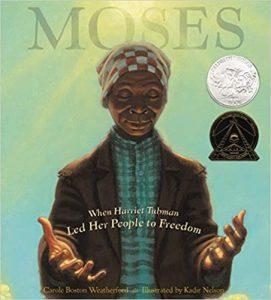
“Moses: When Harriet Tubman Led Her People to Freedom”
Carole Boston Weatherford
Grades 3-5
Follow Harriet Tubman’s physical and spiritual journey. Weatherford and illustrator Kadir Nelson retell her story of bravery and faith via the Underground Railroad. Click here for more children’s and adult books and a movie…all about the Underground Railroad.

Alan S. Kim and Steven Yeun in “Minari.” Photo courtesy of A24
“Minari”
Lee Isaac Chung
PG-13
Minari is the semi-autobiographical story of a first generation Korean-American family and their move from California to rural Arkansas in the 1980’s in pursuit of a better life and the “American dream.” They move to a small trailer on a large plot of land with the intent to become successful independent farmers of Korean produce. Upon seeing the home (trailer) for the first time, the mother Monica says to her husband Jacob “This isn’t what you promised.” Click for additional reading, NPR interviews, how to access the film, and questions to consider…

“The Boy Who Harnessed the Wind”
Chiwetel Ejiofor
recommended for 10+, some sad or scary scenes
Netflix
This movie is a frighteningly realistic yet inspiring story of the multi-faceted challenges of drought, farming, civil disruption, and heartache in a small community in Malawi, Africa. A teenager combines his inventiveness and curiosity with persistence and access to a library to bring about a small miracle that helps his community survive the challenges it faces. This is also available as a book for adults and a book for young readers. Click here for the official trailer and discussion questions.
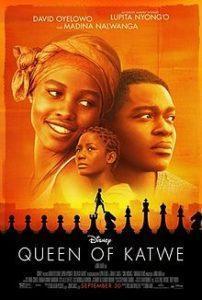
“Queen of Katwe”
Mira Nair
PG rating
“While the Queen of Katwe is based on a true story about a Ugandan girl who becomes an international chess champion, it really is about a Ugandan girl who teaches us how to win at a game called life.” (Blackandmarriedwithkids) The movie begins with Phiona Mutesi, a 10 year old illiterate girl who lives in Katwe, a slum in Kampala, the capital of Uganda. Phiona must help her struggling family survive by selling corn in the streets while her mother, a widow, tries to keep Phiona and her 3 siblings safe. They lose their small one room shack, become un-housed and are on the verge of starvation. Click for questions to consider, the trailer and more…
More from the SJC
SJC signs on to Criminal Justice Reform

Read GBH’s “Prisoner Advocates Call For Reform Of Parole Board As Covid Spreads”
Jesus called us to care for the prisoner. In 2021, we are responding to this call by focusing our support on effective and fair criminal justice in Massachusetts, concentrating on our state’s poor racial equity record. This is a bipartisan issue.
Most of us think of Massachusetts as a progressive state. But it is shocking to find our state has the fourth worst record in the country for racial disparities in criminal justice. This includes the Parole Board.
On January 4th, the SJC signed a letter to state officials (along with 72 other Massachusetts organizations) calling for substantial reforms of the Parole Board. We have plans to lobby for two state criminal justice reform bills; to uncover how justice stands in Essex County; and determine what action we can take. The key emphasis will be on youth justice which has the poorest racial disparities record and the most potential for reform.
Conversations About the Justice System

Courageous Conversations, in partnership with Memorial Hall Library, is offering a series on online conversations focusing on the justice system and issues related to mass incarceration and the very real everyday impacts on communities, especially Black and Latinx communities. They are designed for everyone to participate in meaningful conversation and developing actions that can be taken.
Each program focuses on racial justice with local activist voices at the core. All are open to the public, registration is required.
3/10/2021 @ 7:00 PM – We Need to Talk About An Injustice: The Work of Bryan Stevenson
4/14/2021 @ 7:00 PM – What Positive Justice Looks Like: A Panel Discussion with UTEC (United Teen Equality Center) (Breaking Barriers to Youth Success)
Our South Church Library is a great resource for books about racial justice for both adults and children. Click here for book recommendations and info on how to safely check out our books.
The 21 Day Challenge highlights media that we found deepened our understanding of racism. We share personal reflections and how we connect this work to our faith as Christians.

